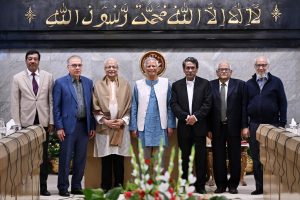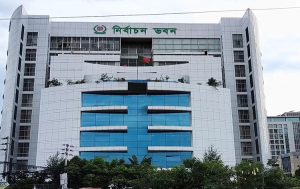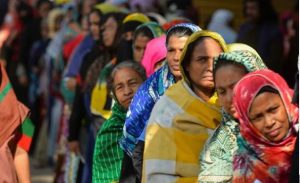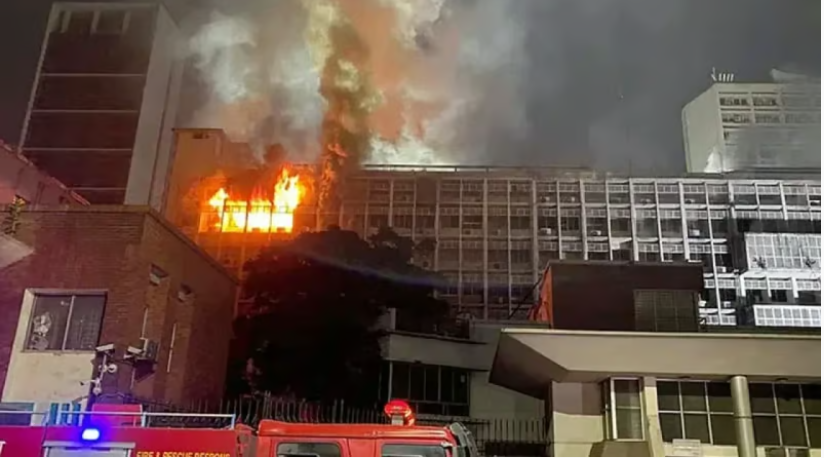The commission on electoral reforms has made 150 recommendations that, if implemented, could bring qualitative changes to the country’s electoral system. However, achieving political consensus on some of these proposals might be challenging.

Chief Advisor Dr. Yunus with four reform commission’s chief
Bangladesh’s existing electoral system does not have many structural flaws. The primary issue in national elections is the interference of the ruling party, which undermines their credibility. Similarly, the main problem in local government elections is the use of party symbols.
The influence exerted by the ruling party during national elections stems from issues in the political system and culture rather than flaws in the electoral system. In many democracies, such as neighboring India, credible elections are held under incumbent governments. However, this has not been feasible in Bangladesh, necessitating the introduction of a non-partisan caretaker government to safeguard democracy. Although this provision was removed through the 15th Amendment of the Constitution in 2011, subsequent elections in 2014 and beyond have been contentious. Nonetheless, this challenge is political, not an inherent flaw in the electoral process. The commission has recommended an impartial government during elections, an idea likely to be reintroduced constitutionally following court rulings.
Local government elections in Bangladesh were previously non-partisan. Even if candidates had political affiliations or were local party leaders, elections were conducted without party symbols or the use of national leaders’ images in campaigns. This allowed candidates to win based on personal charisma. However, in 2015, this system was disrupted when local elections began using party symbols.
This shift caused significant damage to the political culture, especially at the grassroots level, where informal relationships between opposing party members were eroded. The Awami League, in particular, suffered from factionalism due to intense competition and financial rivalry for nominations at every level of local government. Over time, the party has realized the damage caused by partisan local elections, and efforts to revert to the non-partisan model began, but the legislation was not repealed.
The commission has recommended discontinuing partisan local elections, and it is likely that any elections held under the current interim government will follow this model. However, doubts remain about whether the interim government will oversee local elections at all.
Key Recommendations of the Commission
- Holding Local Elections Before National Elections: While the interim government has considered this idea, the BNP is firmly opposed, stating it will not accept local elections before national ones. A recent election commissioner also confirmed their focus is solely on the national elections.
- Abolishing Electronic Voting Machines (EVMs): Initially introduced to enhance transparency in the electoral process, EVMs have faced criticism from opposition parties for alleged manipulation. Despite assurances from the government and IT experts, the system failed to gain trust. Without political consensus, even a technically sound system becomes difficult to sustain.
- Minimum Voter Turnout Requirement: The commission has proposed re-elections in constituencies where less than 40% of registered voters participate. This measure aims to ensure greater voter engagement, counter the trend of candidates winning with minimal support, and compel candidates to connect with voters.
- Preventing Uncontested Elections: The commission has recommended eliminating uncontested elections and reintroducing the “No Vote” option in national polls. If “No Vote” wins, the election would be canceled, and disqualified candidates could not contest again in the re-election.
- Reverting Local Elections to a Non-Partisan Model: Returning to this system would potentially restore local-level harmony and reduce factionalism within major parties.
Implementation Challenges
While some recommendations can be enacted through presidential ordinances during the interim government, the lack of political consensus remains a significant obstacle. Political parties must recognize that the downfall of the Awami League, a dominant party, was partly due to the destruction of the electoral system. Ensuring free, fair, and credible elections is essential for avoiding similar crises in the future. Without necessary reforms, the electoral system will remain as flawed as it is today.



